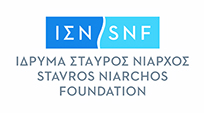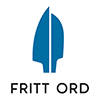
Bringing public attention to environmental crimes is often a deadly pursuit. According to the Global Witness report, more than 2,000 environmentalists have been killed in the last ten years.
In 2022, one was killed every two days. Almost 90% of those killings took place in Latin America.
But the way in which industries and governments destroy ecosystems, violate human rights and damage health with impunity is not limited to one continent. There is a severe moral and human cost associated with buying cheap coal from countries that do not uphold environmental standards. The discussion will focus on the dangers that await journalists who dare to cover open-pit coal mining, its impact on community health, air quality, and nature.
Speakers
Paloma Dupont de Dinechin is a Franco-Chilean investigative journalist. In the ‘Broken Veins of Latin America’, she investigated three environmental murders related to water in Latin America. She also produced the documentary "Los niños lloran" about police violence against indigenous children in Araucanía. Paloma had worked for the Forbidden Stories, was one of the coordinator of the Pegasus Project, and participated in the GreenBlood Project, pursuing the work of threatened journalists working on the mine industry.
Omar Vera is a Colombian journalist and editor with two decades of experience. He has been covering human rights, armed conflict, digital surveillance, multinational companies, and socio-environmental conflicts. Omar is also a co-founder of El Turbion, an outlet that reports on environmental and gender issues in Colombia His investigation on Glencore mines in Colombia, supported by Journalismfund Europe's Earth investigations programme, revealed that it would take the coal giant 65 years to repair the damage caused by its mining activities.
Natalia Zubkova is a Russian journalist and activist who was forced into exile after a massive disinformation campaign and threats against her and her family, as well as police surveillance and harassment, civil fines and government-sponsored lawsuits. She was editor-in-chief and founder of the independent news website Novosti Kiselyovska, where she denounced the dangers of open-cast coal mining. (video contribution)
Alina Simone is a Ukrainian-American journalist, whose first film ‘Black Snow’ supported by the Justice for Journalists Foundation's Investigative grant programme, focuses on the pressures Natalia Zubkova faced once she denounced the coal industry’s wrongdoings. Her work has previously appeared in the New York Times, Wall Street Journal, Guardian Long Read, The Atlantic, NPR, among many others. She was also a regular contributor to the international news radio show The World. (video contribution)
Kirstine Barfod is an acclaimed film producer, celebrated for her significant contributions to the film industry. She has earned prestigious awards including an EMMY, a Cinema Eye Award for Outstanding Achievement in Production, a Peabody Award, and a 2020 Academy Award nomination for producing The Cave, a documentary by two-time Oscar-nominated director Feras Fayyad. Throughout her career, Kirstine has produced and co-produced numerous notable documentaries and series, such as Reunited (Hot Docs), The Magic Life of V (Sundance), and Ibrahim (TIFF). Her outstanding work led to her invitation to join the Academy of Motion Picture Arts and Sciences in 2019 (video contribution)
Moderator
Maurício Angelo is an award-winning international investigative journalist and the founder of Mining Observatory, a Brazilian based investigative journalism Centre established in 2015. Researcher at Center for Sustainable Development at the University of Brasília. He was the winner of the Excellence in Journalism Award (2019) by Inter American Press Association. Considered one of the Top 3 journalist experts in Extractive Sector in Brazil in 2022 and 2021.


Centro Cultural Gabriela Mistral
Av. Libertador Bernardo O'Higgins 227
8320275 Santiago
Chile








